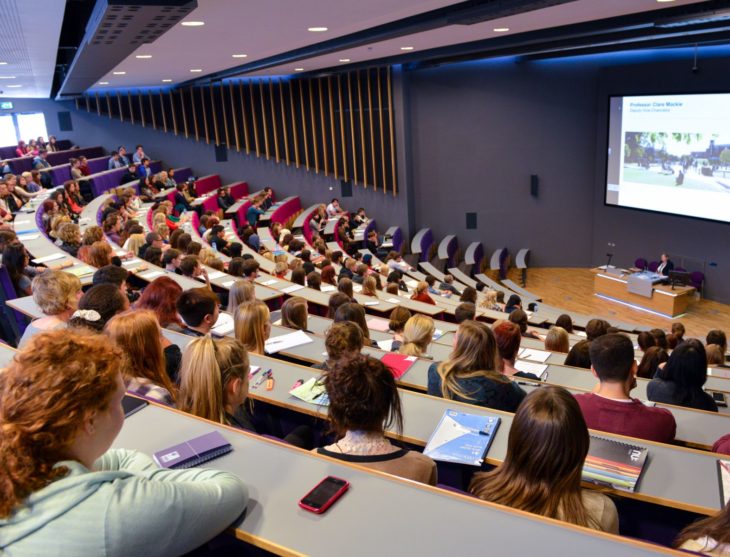The robots of the future are coming to terminate your job. So get ready.
Maybe you thought little of it when they developed automated car washes. But now some of those cars don’t even need drivers.
A recent study by the McKinsey Global Institute found that computer automation and robotics could displace up to 30 percent of the world’s workforce by 2030. And that’s a real concern to business schools, which are at risk of becoming irrelevant if they don’t keep pace with rapidly changing technologies that determine the way the world works.
Among the schools now teaching artificial intelligence and machine learning is the MIT Sloan School of Management’s masters-level business analytics program. We live in an era of big data, and computers can crunch it much faster than human beings, making data analytics a rising field.
But while machines can be taught to perform many human tasks, the management and implementation of advances in AI create a complex set of challenges and opportunities for human beings, not to mention the potential for lots of high-paying jobs.

Source: nikkei
According to study.com, the average salary for anyone with a bachelor’s degree in business was $56,720 as of 2018, but graduates in specialized fields can earn a lot more. For students, the key imperative is to gain the training that will equip them for the workplace of the future.
The rise of AI is making the technical skills of the average job-seeker slightly less relevant, though business schools are increasingly teaching soft skills like communication, collaboration, creativity, critical thinking, and problem-solving.
In fact, some scholars’ answer to robotics is an emphasis on “humanity” — a strategy for “robot-proofing” your career by becoming good at primarily human traits like creativity, innovation, and empathy.
In the recent book “Robot-Proof: Higher Education in the Age of Artificial Intelligence,”
Northeastern University President Joseph E. Aoun writes:
“Instead of educating college students for jobs that are about to disappear under the rising tide of technology, twenty-first-century universities should liberate them from outdated career models and give them ownership of their own futures. … Universities must broaden their reach to become engines for lifelong learning.”
Another rapidly emerging field is cryptocurrency and blockchain, the record-keeping technology behind bitcoin. Several schools have recently added new courses on cryptocurrency and blockchain, including Sloan, the University of Pennsylvania Wharton School, Stanford Graduate School of Business and Georgetown University’s McDonough School of Business.

Source: careermetis
Disruption, entrepreneurship, sustainable innovation, and STEM (Science, Technology, Engineering, and Mathematics) are other leading concepts that are increasingly being addressed in schools.
There are also major changes underway in how business education is delivered, with the following trends most notable:
• Online classes are exploding, making top-level instruction available to just about anyone anywhere.
• In a field where lifelong learning is considered essential, short online courses provide schools with a way to keep students up to date on the next big thing.
• Hybrid classes combining classroom instruction and digital platforms are on the rise.
• MBAs that can be obtained in one year, as well as lower-level certificates and credentials, provide alternatives to the standard two-year immersion.
• Business schools are increasingly partnering with other departments to provide cross-disciplinary instruction, such as a combination of business and computer science courses.
We may not be looking at a “robocalypse” in which Skynet will become self-aware, overthrow humanity, and send cyborgs into the past to hunt down their enemies.
But the “rise of the machines” is inevitable, and both business schools and their students would do well to take note.
